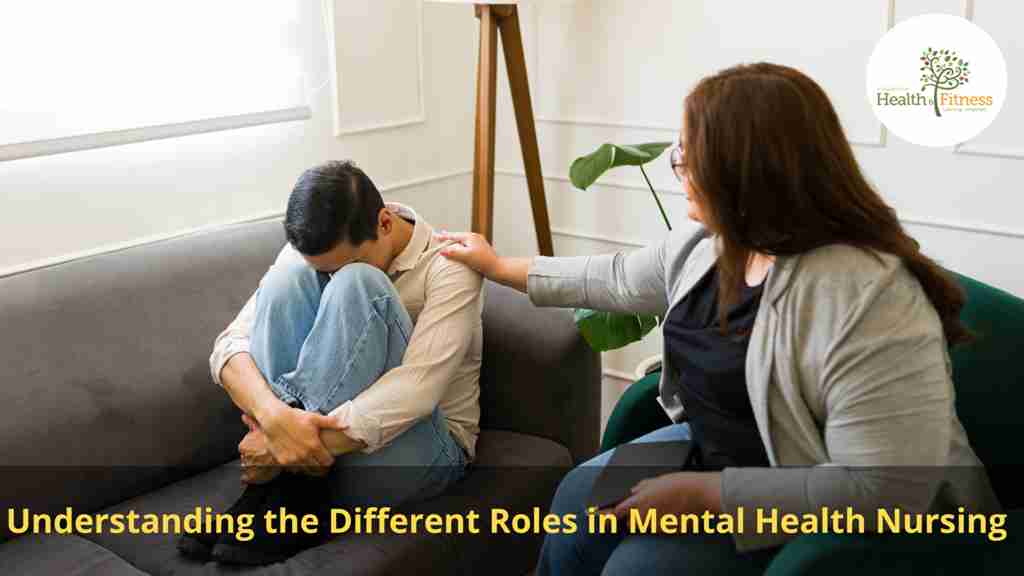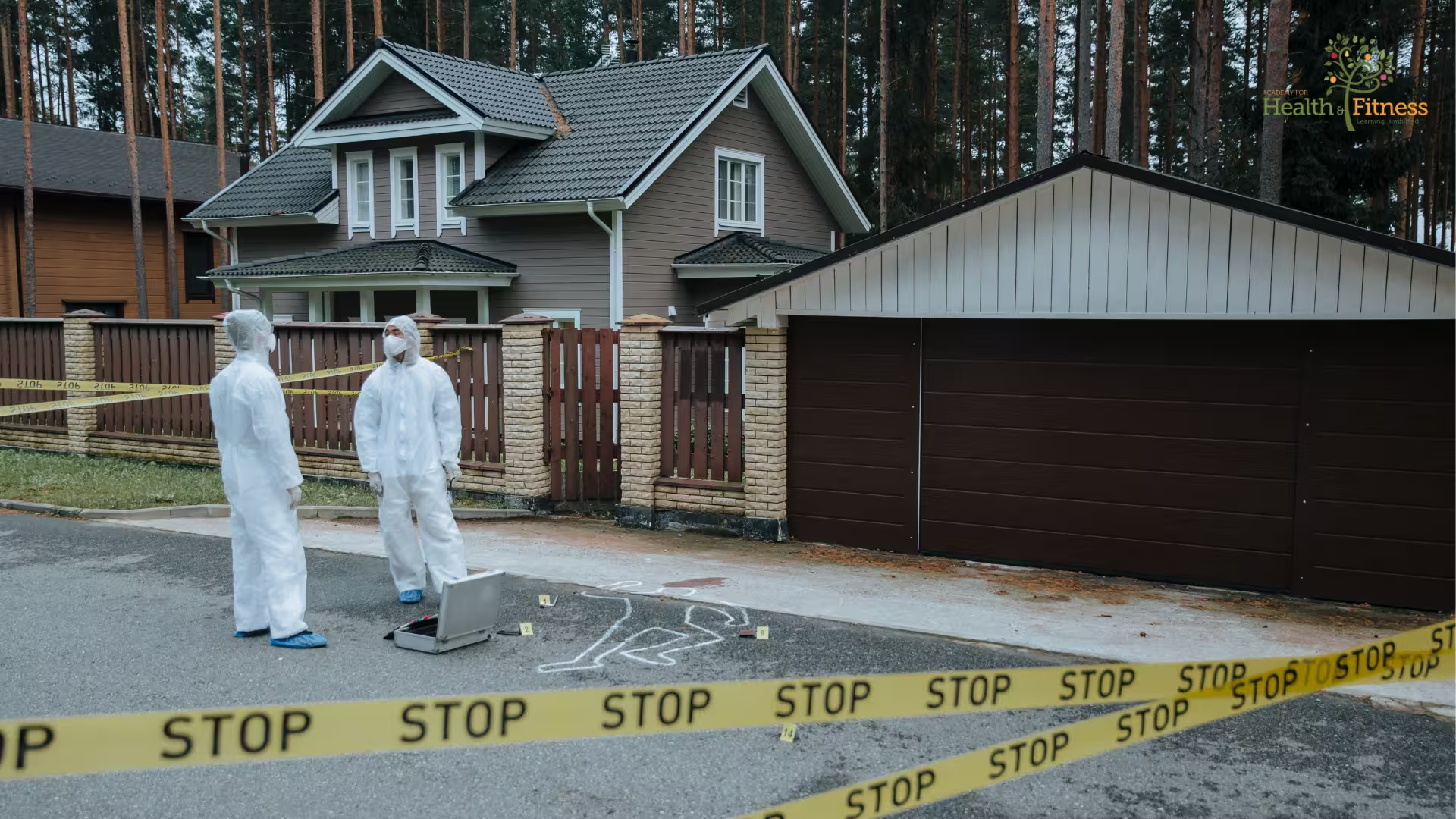
You might wonder: What exactly do mental health nurses do? How do their roles differ in various settings? And what makes their work so unique compared to other nursing professions?
Mental health nursing might sound complicated, but it’s easier to understand than you think. Some nurses support people at home or in hospitals, while others work in more specialised roles. Each plays a vital part in helping patients.
If you’re ready to explore the diverse roles and career paths in mental health nursing, you’re in the right place. We’ve compiled all the insights you need in this blog, so keep reading to uncover everything about this essential and rewarding profession!
#1 Community Mental Health Nurse

What do they actually do?
They’re there to help patients maintain a sense of normalcy. Maybe it’s checking in during a home visit, coordinating with family members, or just being a steady presence. These nurses guide patients as they adjust to life outside clinical care.Key Responsibilities:
- Visiting patients at home to see how they’re really doing.
- Offering advice that feels practical, not overwhelming.
- Working with social services or other healthcare teams to cover all the bases.
#2 Inpatient Mental Health Nurse
 Inpatient Mental Health Nurses are the backbone of care in hospitals or psychiatric wards, stepping in during some of the most critical moments in a patient’s journey. They provide round-the-clock support to help patients stabilise and recover in a safe environment.
According to the Mental Health Services Monthly Statistics, as of January 2024, approximately 1.9 million individuals were in contact with mental health services in England, with a significant portion receiving inpatient care.
Inpatient Mental Health Nurses are the backbone of care in hospitals or psychiatric wards, stepping in during some of the most critical moments in a patient’s journey. They provide round-the-clock support to help patients stabilise and recover in a safe environment.
According to the Mental Health Services Monthly Statistics, as of January 2024, approximately 1.9 million individuals were in contact with mental health services in England, with a significant portion receiving inpatient care.
What do they do?
Think of them as the calm in the storm. Whether it’s managing a mental health crisis, administering medication, or simply being there to listen, these nurses are a lifeline for patients during their toughest days.Key Responsibilities:
- Keeping a close eye on patients, ensuring their safety and well-being.
- Administering medications and tracking their effects.
- Responding quickly to crises, whether it’s a sudden outburst or an emotional breakdown.
#3 Forensic Mental Health Nurse
 Forensic Mental Health Nurses are a rare breed. Working in places like prisons, secure hospitals, or locked mental health units, they handle some of the toughest cases.
According to the Royal College of Nursing, forensic mental health nursing involves managing and treating offenders with mental health issues, often in partnership with private providers to reduce patient displacement and service costs.
Forensic Mental Health Nurses are a rare breed. Working in places like prisons, secure hospitals, or locked mental health units, they handle some of the toughest cases.
According to the Royal College of Nursing, forensic mental health nursing involves managing and treating offenders with mental health issues, often in partnership with private providers to reduce patient displacement and service costs.
What do they do?
They help people who’ve often been through hell—trauma, crime, or mental health crises. Some are offenders; others are at risk. Either way, these nurses provide care while keeping everyone safe. It’s not just medical work. It’s about understanding, patience, and sometimes tough love.Key Responsibilities:
- Digging deep into risk assessments. What could go wrong? How can it be prevented?
- Offering therapy—sometimes it’s a breakthrough, other times it’s small steps forward.
- Working with legal teams. You’ve got to align care with justice, which isn’t always easy.
#4 Child and Adolescent Mental Health Nurse (CAMHS)
 CAMHS nurses specialise in supporting young people through mental health struggles, from anxiety to more complex conditions. Their role isn’t just about care, but more about connection.
CAMHS nurses specialise in supporting young people through mental health struggles, from anxiety to more complex conditions. Their role isn’t just about care, but more about connection.
What do they do?
They’re the trusted ally for kids and teens who might feel like the world doesn’t understand them. CAMHS nurses listen, guide, and help young people navigate their challenges. But it’s not just about the child—they’re there for the families too, offering support and advice to create a stable environment.Key Responsibilities:
- Building trust. Because let’s face it, kids don’t open up easily.
- Working closely with parents and carers, making sure everyone’s on the same page.
- Addressing developmental concerns, like anxiety, ADHD, or behavioural issues, with tailored care plans.
#5 Substance Abuse Mental Health Nurse
 Substance Abuse Mental Health Nurses are the steady hands helping people break free from the grip of addiction. It’s tough work—guiding patients through recovery while addressing the mental health challenges that often come with it.
Substance Abuse Mental Health Nurses are the steady hands helping people break free from the grip of addiction. It’s tough work—guiding patients through recovery while addressing the mental health challenges that often come with it.
What do they do?
They’re the ones who see the person behind the addiction. Whether it’s helping manage withdrawal symptoms, providing therapy, or creating relapse prevention plans, these nurses play a critical role in rebuilding lives. It’s not just about physical recovery—it’s about emotional and mental healing too.Key Responsibilities:
- Offering therapy sessions to address the root causes of addiction.
- Managing withdrawal symptoms with care and compassion.
- Educating and empowering patients to prevent relapse and maintain long-term recovery.
#6 Geriatric Mental Health Nurse
 Geriatric Mental Health Nurses specialise in caring for elderly patients facing mental health challenges like dementia, depression, or anxiety. Their role is as much about supporting families as it is about helping patients manage their conditions.
Geriatric Mental Health Nurses specialise in caring for elderly patients facing mental health challenges like dementia, depression, or anxiety. Their role is as much about supporting families as it is about helping patients manage their conditions.
What do they do?
They help older adults navigate the unique intersection of mental health and aging. Whether it’s managing dementia symptoms or offering emotional support during periods of loss or change, these nurses are there to ensure dignity and quality of life. Families rely on them too—for guidance, reassurance, and practical advice.Key Responsibilities:
- Managing mental health conditions alongside physical health challenges common in aging.
- Providing emotional support to patients coping with changes in memory, mobility, or independence.
- Guiding families through care plans, offering education and resources to support their loved ones.
#7 Crisis Intervention Mental Health Nurse
 Crisis Intervention Mental Health Nurses are the frontline responders in mental health emergencies. Their job is to step in when emotions are running high, situations are unpredictable, and immediate support is crucial.
Crisis Intervention Mental Health Nurses are the frontline responders in mental health emergencies. Their job is to step in when emotions are running high, situations are unpredictable, and immediate support is crucial.
What do they do
They’re the calm in the chaos, helping individuals through some of the toughest moments of their lives. Whether it’s a panic attack, suicidal ideation, or a severe mental health episode, these nurses act swiftly to de-escalate the crisis and stabilise the patient. It’s high-pressure work that requires both quick thinking and deep compassion.Key Responsibilities:
- De-escalating crises using therapeutic communication and interventions.
- Providing immediate support to patients in distress, ensuring their emotional and physical safety.
- Collaborating with other healthcare professionals to create short-term and long-term care plans.
FAQs
1. What is the role of mental health?
Mental health influences how individuals think, feel, and behave, helping them manage stress, build relationships, and maintain resilience in daily life.
2. What are the four types of mental health?
The four types include emotional health, cognitive health, social health, and mental illness, which together define overall psychological well-being.
3. What is the best definition for the role of nursing in psychiatric nursing?
Psychiatric nursing focuses on providing holistic care, supporting recovery, and improving emotional, psychological, and social well-being.
4. What qualifications do I need to become a Mental Health Nurse in the UK?
You need a degree in mental health nursing and registration with the Nursing and Midwifery Council (NMC).
5. What is the average salary of a Mental Health Nurse in the UK?
Salaries range from £25,000 to £40,000, with advanced roles earning £45,000 or more annually.
6. Is mental health nursing emotionally challenging?
Yes, it can be demanding, but it’s also incredibly rewarding for those passionate about making a difference.
Conclusion
Mental health nursing is full of variety. Some roles focus on helping patients in their homes, others in hospitals. Some deal with crises, while others work with children, the elderly, or those battling addiction. Each role matters. Each one makes an impact—on patients, families, and entire communities.
It’s not just a job. It’s a career where you see lives change because of your care. Sure, it’s tough sometimes. Helping someone through their darkest days or watching a patient regain hope—it’s the kind of work that stays with you.
If you’re thinking about it, why not? Mental health nursing might just be the most meaningful thing you ever do.